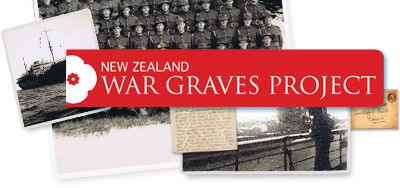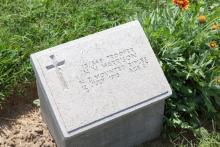Jack King of Whangarei never knew his two uncles killed during the 1915 Gallipoli campaign but he can't talk about their deaths without his eyes filling with tears.
Hayward and Ben Harrison died within three weeks of each other, aged 27 and 25 respectively. Their deaths devastated their exceptionally close-knit family and shocked the small community of Maungaturoto where they had grown up.
Jack King was born 17 years later but grew up very much aware of an ongoing sadness about the loss. "I felt the sadness was about losing a whole future dimension of family as well as the men themselves," he says.
He and his older brother Eric (now 82) were often reminded of their dead uncles because Eric turned out to be `the living image' of Hayward Harrison, and people in the district were more than once rocked when they first saw him as a young adult, thinking they were seeing Hayward.
Jack achieved some closure by visiting Gallipoli in 1995 with Eric and their wives Sue and Betty. "I had wanted to go for as long as I could remember ... it was unfinished family business," he says. The visit left him feeling he had done the right thing by his uncles and he says since then he has found it easier to talk about their deaths.
Ben and Hayward were in the same platoon and sailed for Europe in the main body of the First New Zealand Expeditionary Force (8000 men) in October 1914, arriving in Egypt late November.
Six months later they were sent to Gallipoli. Seven months after that they were both dead.
Hayward died of a throat wound at Walker's Ridge on July 12. Ben, who was close by when his brother was killed, spent the whole night gathering stones to make a burial cairn in a sheltered gully. He apparently paid a fellow soldier to incise a makeshift gravestone. Hayward's body was recovered after the war and buried at nearby Ari Burnu cemetery.
Ben died on August 8 in a long and fierce battle to relieve the Wellington troops at the top of Chunuk Bair. Two hundred and forty eight men made it to the top, including Ben, only to find themselves in what a survivor described as "the mouth of hell". Close friend Sandy Donaldson of Maungaturoto saw Ben go down. Later that night the whole area was set on fire by shell-fire. Ben's body was never recovered.
Jack says he was always puzzled that his mother and her sister spoke as though they were not quite sure what happened to Ben. "They seemed to have it in their minds that he might have ended up in a Turkish hospital with head wounds and not known where he was. They must have been advised of how and where he was lost but I suppose thinking he might be in a hospital was a way of coping with the situation," he says. At Gallipoli Jack and Eric climbed down into the trenches on Chunuk Bair and up to the top of the mountain. They were shocked to realise how unprotected the New Zealand troops had been from the Turkish machine-gunners above. "No wonder they were mown down - it was slaughter," says Jack. They also visited the boys' gravestones in Ari Burnu.
They were alone but felt far from alone, Jack says. "It was almost like standing on a stage with a huge audience you couldn't see," is the nearest he can get to describing the eerie feeling of the place.
"Health and wealth permitting", Jack hopes to attend the 100th anniversary of the campaign in 2015. Jack is certain of one thing - "when the shooting stops, you look around and find nobody is a winner".
NorthernAdvocate. 24th October 2011


